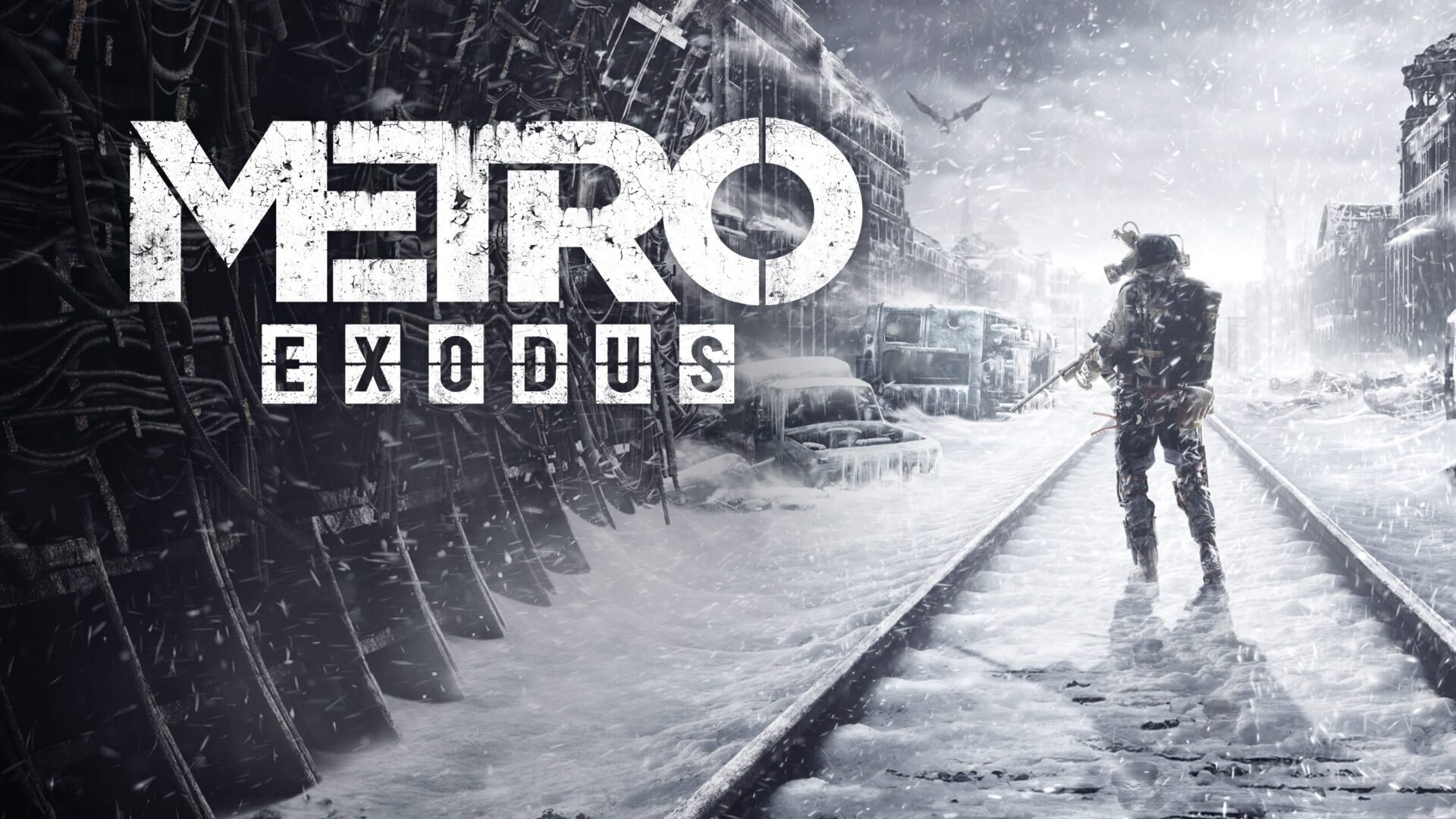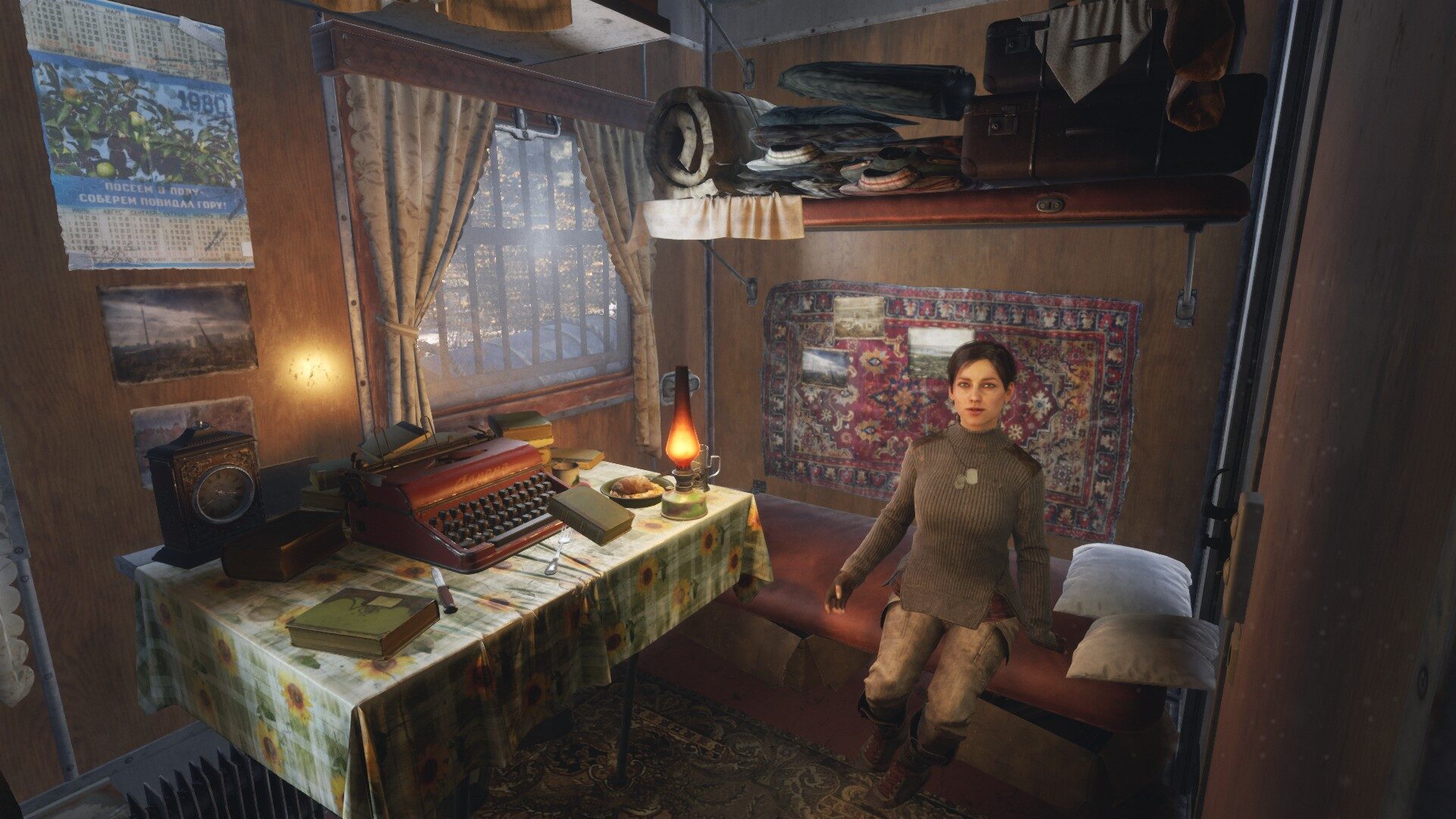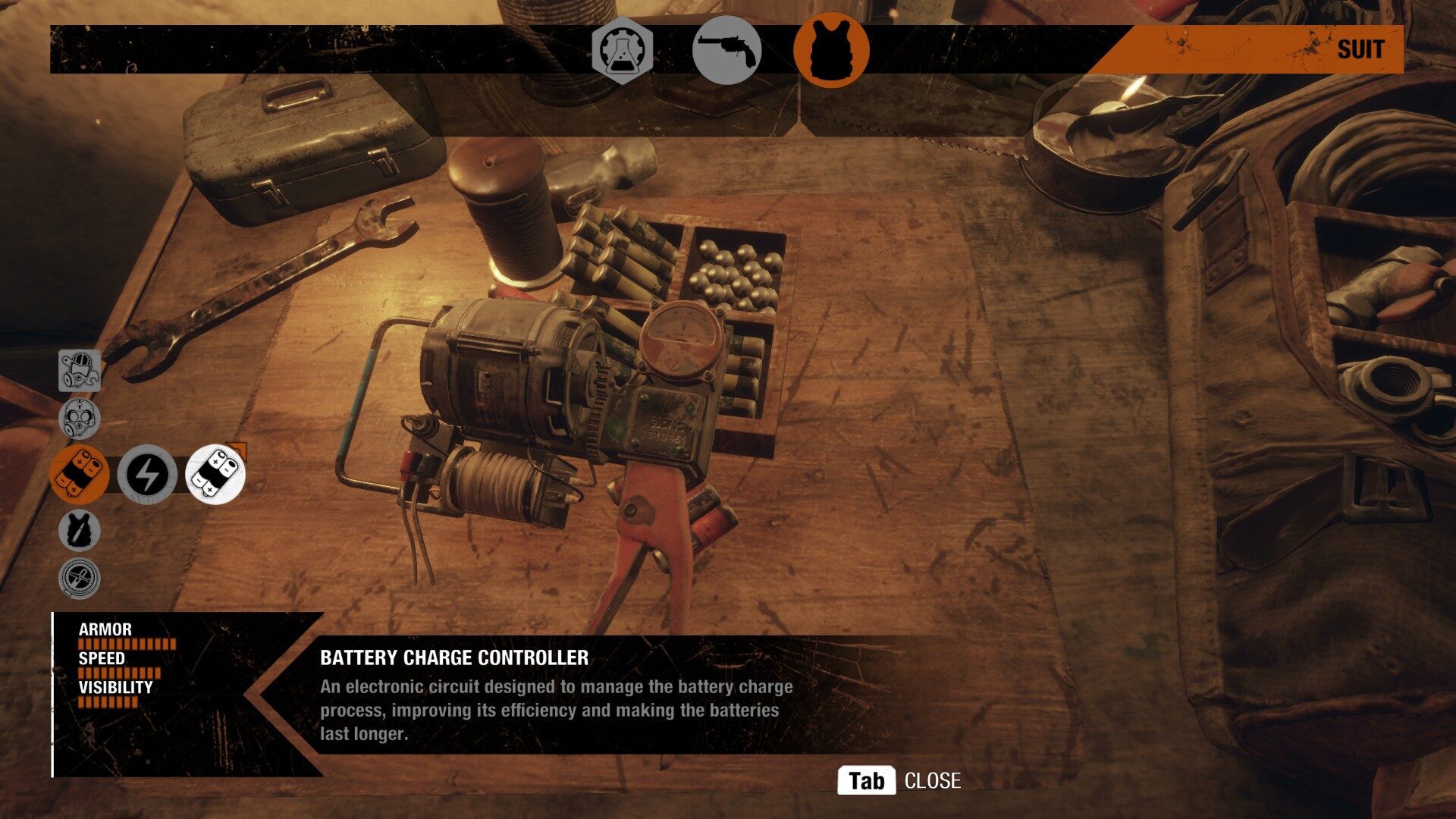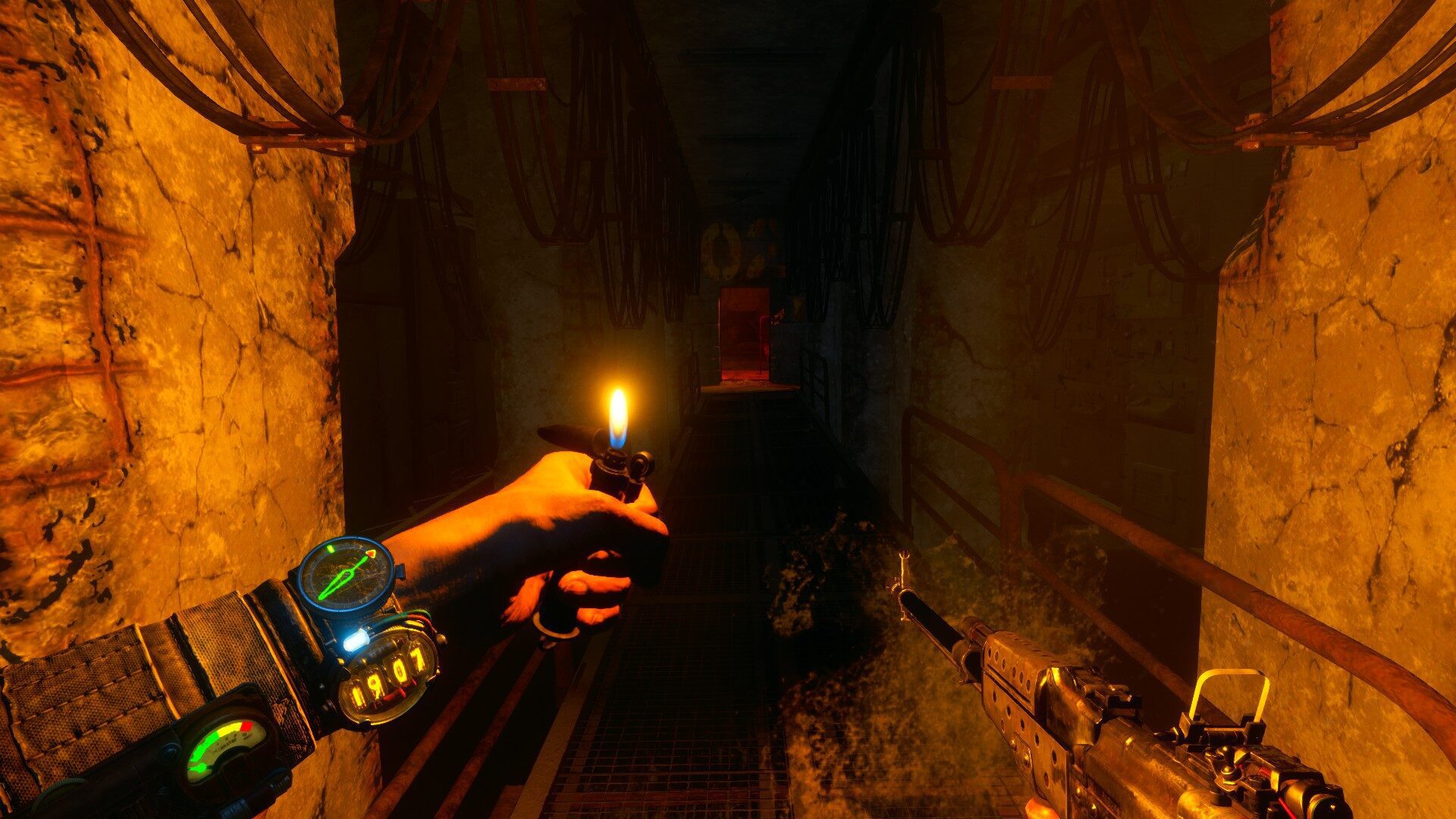
The Metro series of games is based on the Russian novels of the same name by Dmitry Glukhovsky, and takes place in post-apocalyptic Moscow, where monsters roam the perpetual winter of the city and humanity takes refuge in the subway tunnels of the metro. Well, until now. Metro: Exodus is the third game in the series, and takes place following the events of Metro: Last Light. It should be mentioned that Exodus taking place at all is itself a spoiler for the events of Last Light, as it sets the “good” ending of that game as the canon ending. Exodus has the player leave the cramped tunnels of the metro and venture across the post-apocalyptic Russian countryside in search of a new home and a new life.

The player character is none other than the hero of the metro, the protagonist of the past two games, Artyom. He’s a member of the Spartan Order, sworn defenders of peace and justice. The game starts with him taking secret trips up above ground to try and search for life outside the city, which causes him to get frequent radiation poisoning, much to the chagrin of his wife Anna and his commander Miller. The plot sets in motion when, on one trip, he stumbles upon a radio jamming station that has been blocking his signals. He discovers that there are others who live outside Moscow, and with the help of his Spartan brothers-in-arms, sets out across the country in a train to try and find a new place to live. This is where the story tends to fall apart a little. The Metro games have always been more about a place than about characters, and while the characters are beautifully written and realized, it becomes hard to care about the places they go because the player is only there for a short time. There’s a strong theme of escaping a dreary survival and finding meaning in living a better life, even if it means enduring hardship and struggles. The crew finds themselves up against a cult on the banks of the Volga river along with cannibals and slavers in the Caspian Sea, but for a while it doesn’t feel like they’re progressing very much towards their goal. As a result, the plot itself feels very loose and unsure of itself until later in the game. It’s also hard to tell if there’s any kind of message or Catholic takeaway in the first half of the game. That said, everything that there is to love about Metro characters and places is still here, including beautiful environments that tell stories, characters that feel incredibly real and human, and gameplay that is as organic and intuitive as ever.
Metro: Exodus is a shooter at heart, so the main thing the player will be doing is shooting at enemies. The guns available to you are highly customizable, allowing your arsenal to be extremely flexible. Your standard pistol could be modified to be a longer range hunting rifle, and your assault rifle could be modified into an LMG. However, the game also has some of the best stealth mechanics I’ve ever seen and there are instances where the player is incentivized to sneak around enemies to an objective rather than brute-force through obstacles. This duality of the game’s mechanics gives the player a choice when approaching enemy camps or strongholds. Usually, mutants and beasts don’t care whether or not you try to stealth around them; they’ll rush at you either way. This gives you ample opportunities to have fun with both open combat and stealth. Besides that, you can scour the world for crafting supplies to make weapon attachments and ammo, and there are also collectibles like postcards and equipment upgrades hidden around as well. Exodus has a very mixed bag of gameplay elements that don’t necessarily gel together in the best way possible, but are each fun in their own right.

Possibly the best thing about Metro‘s world is the immersion that the game creates through its mechanics. The player has to be mindful of their ammo, gas mask, map, weapon condition and visibility, and none of this is managed through pause menus. If you have to wipe your mask off or check your map, you do it while the world around you is still moving and existing. It makes the world feel so much more real when you have to make smaller decisions like whether or not stopping to change weapon attachments will expose you to an enemy’s line of sight. Of course, I’ve already mentioned the character interactions, and the sheer amount of ambient dialogue and conversations to eavesdrop on is impressive, but even the gameplay mechanics work to draw you into the world further and get you fully immersed in everything that’s going on.
It should be noted that Metro: Exodus is very much deserving of its M rating. The obvious reasons are that it’s a shooter and the characters swear a lot, but there are two scenes in particular that feature nude women. The first is in the Caspian Sea, where the level boss’s stronghold is home to his own personal harem and strip club that the player has to walk past to get to the boss fight. The player can’t interact with anyone, but it is there and hard to ignore. The second instance is ever so slightly more discreet, and it’s a scene with the player and his wife alone in a train car. Nothing really happens, they just talk for a moment about their journey, but the player’s wife isn’t wearing a shirt for a short time. Other than that, the game is about what you’d expect from an M-rated first person shooter. There are plenty of instances of corpses lying around, creepy spider dens, cold-blooded murder, et cetera. Suffice it to say that Metro: Exodus and the series as a whole is not for the faint of heart.

Metro: Exodus doesn’t feel like a Metro game for a long time, and there are a few reasons for this. The first one is the open world. Fans of Metro 2033 and Last Light have found a certain comfort in the claustrophobic tunnels of the metro and a certain enjoyment in the constant struggle for survival. There are parts of Exodus that feel more like a Fallout game in the sense that the world is open, resources are craftable and not as scarce, and the environment is less dreary. Some players might enjoy this, but for an entry in the Metro series, it’s a bit of a jarring transition. There are parts of the game that feel much closer to tradition for the series, including one of the DLC levels. Even if it fits the themes of the story really well, the overall shift to an open world isn’t necessarily a universally welcomed change in terms of gameplay. Overall, Exodus is a well-realized and immersive world with likable characters, but it’s seen through the lens of a rather hit-or-miss story.
Scoring: 80%
Gameplay: 5/5
Graphics: 5/5
Replayability: 3/5
Story: 3/5
Controls: 4/5
Morality/Parental Warnings
Language: The protagonists and enemies alike swear frequently both in cutscenes and ambient dialogue.
Sex/nudity: The Caspian level blatantly features nude women at its conclusion, and this scene, although brief, is unskippable.
Violence: It’s mostly what you’d expect from a first person shooter, featuring stealth kills, dead bodies, giant spider monsters, etc. Exodus tries to lean into the horror genre at a few points, and these points are heavy on the implied violence through the environment.
